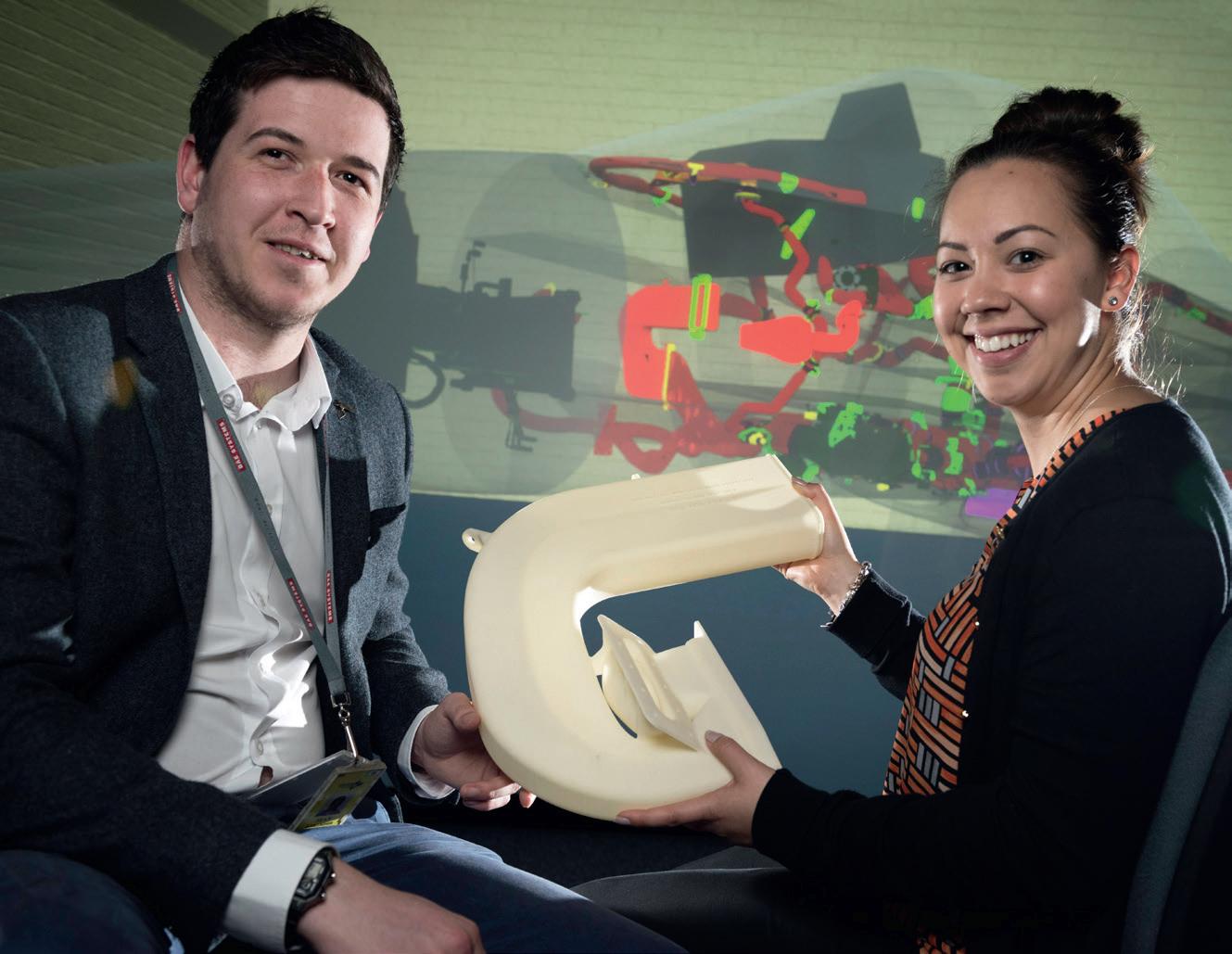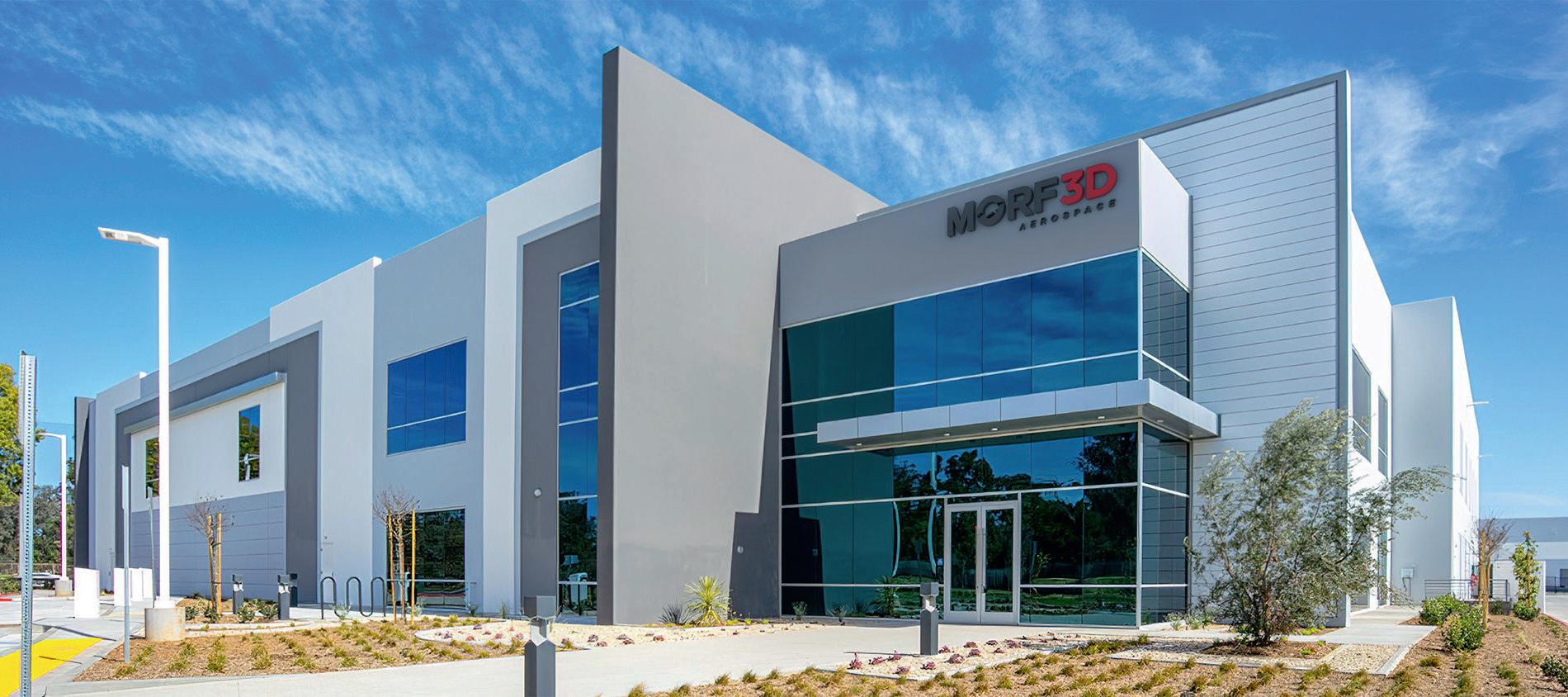
3 minute read
MAKING MOVES
Makelab Co-founder and CEO Christina Perla talks scaling, the power of desktop 3D printers and more.
TCT: You’ve previously said that one of the key things that drives you and your team is being able to enable small businesses through Makelab. Can you elaborate on that?
CP: That fi rst prototype is a moment of fruition for so many hardware founders, it’s a point of confi dence. It’s like, ‘Wow, I made this’ and emotionally that’s a memory that they carry with them throughout the rest of their journeys in their careers. In that moment, their initial fears of a long and chaotic process are diminished because we help make it easy and pleasant and cost eff ective and short and just simple. And that’s powerful, we help them get to their launch date faster. And we empower them to do it again, with more confi dence.
TCT: You also commented on how you would like to see more OEMs consider service bureaus when designing solutions, especially at the desktop machine level. Has that changed at all?
CP: I think it has slightly, but I also think that framing should be a part of the equation. In this industry, there's still such a divide between industrial and desktop, and it boils down to fi delity of output parts. Another way to think about is scale as well. Scaling up to industrial equipment is defi nitely valid and I think there's a case for service bureaus where both exist, especially depending on how you're packaging your services to your clients. I'd like that to be a little bit more part of the conversation. When should I use desktop? When should I use industrial? There are so many options out there these days and sometimes what I see with our clients is, with materials, there's so many options, problem solving, you can have a scalable business off of desktop machines.
they get this paralysis, they want to use 3D printing for their projects but they just don't know where to start. And the same thing is happening for this industry for machines as well. So I'd love to see more context in those conversations and in those solutions.
TCT: To that end, what would you say to those who may still think of desktop machines as purely for hobbyists and makers?
CP: The word ‘make’ is automatically associated with non-scalable, nonserious, non-professional use cases. And it's automatically regarded as And it's automatically regarded as small. But the thing is, high fi delity parts small. But the thing is, high fi delity parts coming out of desktop machines is a coming out of desktop machines is a thing. And it's cost eff ective. And it's thing. And it's cost eff ective. And it's possible. Sure, you don't have some possible. Sure, you don't have some of the bells and whistles and you of the bells and whistles and you may not be able to run an may not be able to run an entire production line entire production line from these machines from these machines but there's also an but there's also an element of what you element of what you do and what you do and what you make of it. If you can make of it. If you can add a little bit of add a little bit of creative problem creative problem solving and solving and innovative innovative
TCT: Over the last few years, we've really experienced heightened interest in 3D printing and supply chain; businesses turning to 3D printing as a temporary stopgap. Have you seen that at Makelab?
CP: We've seen more and more inquiries but being that we still have mainly prototyping machines, we can't always accept the business that we want to at this stage. So that is part of our scale plans because we are seeing it. Manny [Mota, Makelab co-founder] and I were talking one night about this whole notion of manufacturing and traditional manufacturing and AM parts being more and more viable. We looked at our Roomba in the house, and we've taken it apart so many times because things get stuck: socks, cords, everything! Taking it apart, this is a complex assembly. Even if 25% of the parts inside of a Roomba can be manufactured locally and through additive, that saves so much headache, so much possible disruption, so much cost even. So, it's defi nitely a trend that we see growing and we're excited. We're here for it.
Interview has been edited for length and clarity. Listen to the conversation in full:
mytct.co/ MakelabPod












